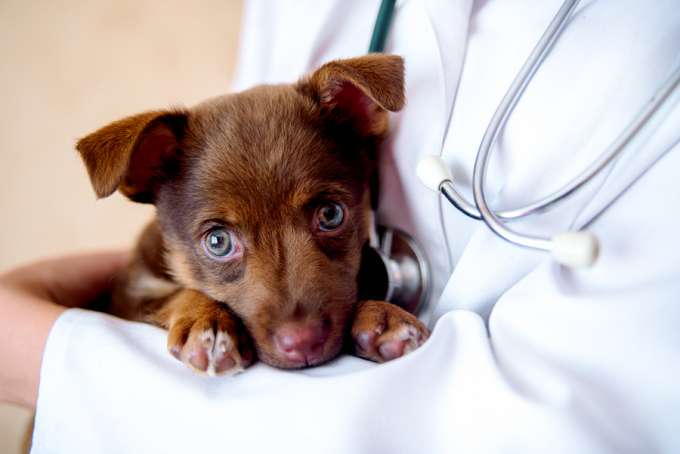Please refer to our most recent post on COVID-19 for current information and recommendations, along with our guide to COVID-19 resources and PPE and sanitation alternatives for animal shelters.
With the emergence of a novel coronavirus, COVID-19, as a global pandemic threat, animal shelters may be faced with a number of difficult challenges. As part of the disaster response and disease prevention missions of the Maddie’s Shelter Medicine Program at the University of Florida, we will be updating this post with new information and resources as they develop. Refer also to the Coronavirus (COVID-19) shelter kit from Animal Sheltering for new information and resources.
Updated on 3/13/20: One dog in Hong Kong was under quarantine after his owner was hospitalised with COVID-19, but he has been released. The World

Health Organisation concluded, “The current spread of COVID-19 is a result of human to human transmission. To date, there is no evidence that companion animals can spread the disease. Therefore, there is no justification in taking measures against companion animals which may compromise their welfare.”
Experts are not currently suggesting that pets can transmit the illness to humans, or become sick from it themselves, but studies are needed to answer that with greater certainty. Dogs and cats can become infected with their own coronaviruses that cause respiratory and gastrointestinal disease, respectively. Those coronaviruses do not cause illness in humans.
Impact on Animal Shelters
Initial impact on animal shelters is likely to be focused more on human staff and volunteers than animals. Shelters should develop an emergency response plan in case there is an outbreak of COVID-19 in their area, A quarantine as long as 14 days may be recommended for humans, which could result in severe staffing shortages. Employees and volunteers who have respiratory symptoms should not be expected or allowed to come into work. Shelters need to be ready to handle large numbers of sick or absent staffers who are diagnosed or suspected to be infected with COVID-19. The CDC has published extensive guidelines for employers that can guide this effort.
The CDC and the Canadian Public Health Service are recommending that pet owners who have been diagnosed with COVID-19:
- Avoid close contact with their pets
- Wash their hands before touching or feeding the pet
- Do not snuggle or kiss their pets, or let them sleep with them in the bed
- Do not cough or sneeze on their pet
- Don’t let the pet have contact with other animals or people
While many pet owners will disregard these guidelines, they may well also alarm some people who may decide to relinquish their pets to an animal shelter, which could potentially drive increased intake to shelters. Shelters will also be faced with caring for the pets of hospitalized or deceased individuals who have no one else to do so.
Shelters need to be ready to deal with admitting or diverting animals who may have been exposed to COVID-19 in their homes. These conditions are at crisis levels in Chinese animal shelters at this time.
New on 3/9/20: Additionally, animal shelter medical departments, hospitals, and spay/neuter clinics may experience shortages of veterinary medications and supplies, such as surgical masks.
New on 3/12/20: National Animal Care & Control Association (NACA): Statement on Animal Control Functions During the COVID-19 Pandemic
Additional Resources
Remember, this information will be updated regularly. We also recommend the following resources:
Worms and Germs blog for the most up to date information
The New Coronavirus and Companion Animals from the World Small Animal Veterinary Association
World Organisation for Animal Health Frequently Asked Questions
AVMA: What Veterinarians Need to Know About COVID-19
Compendium of Veterinary Standard Precautions for Zoonotic Disease Prevention in Veterinary Personnel from the National Association of State Public Health Veterinarians
New on 3/5/20: Guidance for Pet Owners from the Florida Veterinary Medical Association
New on 3/9/20: Emerging coronavirus strains and veterinary patients from IDEXX
New on 3/10/20: AVMA Update: CDC interim guidelines… note “When a public health professional is notified of a pet, or other animal, in the home of a person with COVID-19, they should notify the state public health veterinarian or other designated animal health professional.”
New on 3/11/20: EPA: Registered Antimicrobial Products for Use Against Novel Coronavirus SARS-CoV-2, the Cause of COVID-19
New on 3/11/20: AVMA: Frequently Asked Questions about COVID-19
New on 3/12/20: HSUS: Expand your foster network to combat COVID-19

